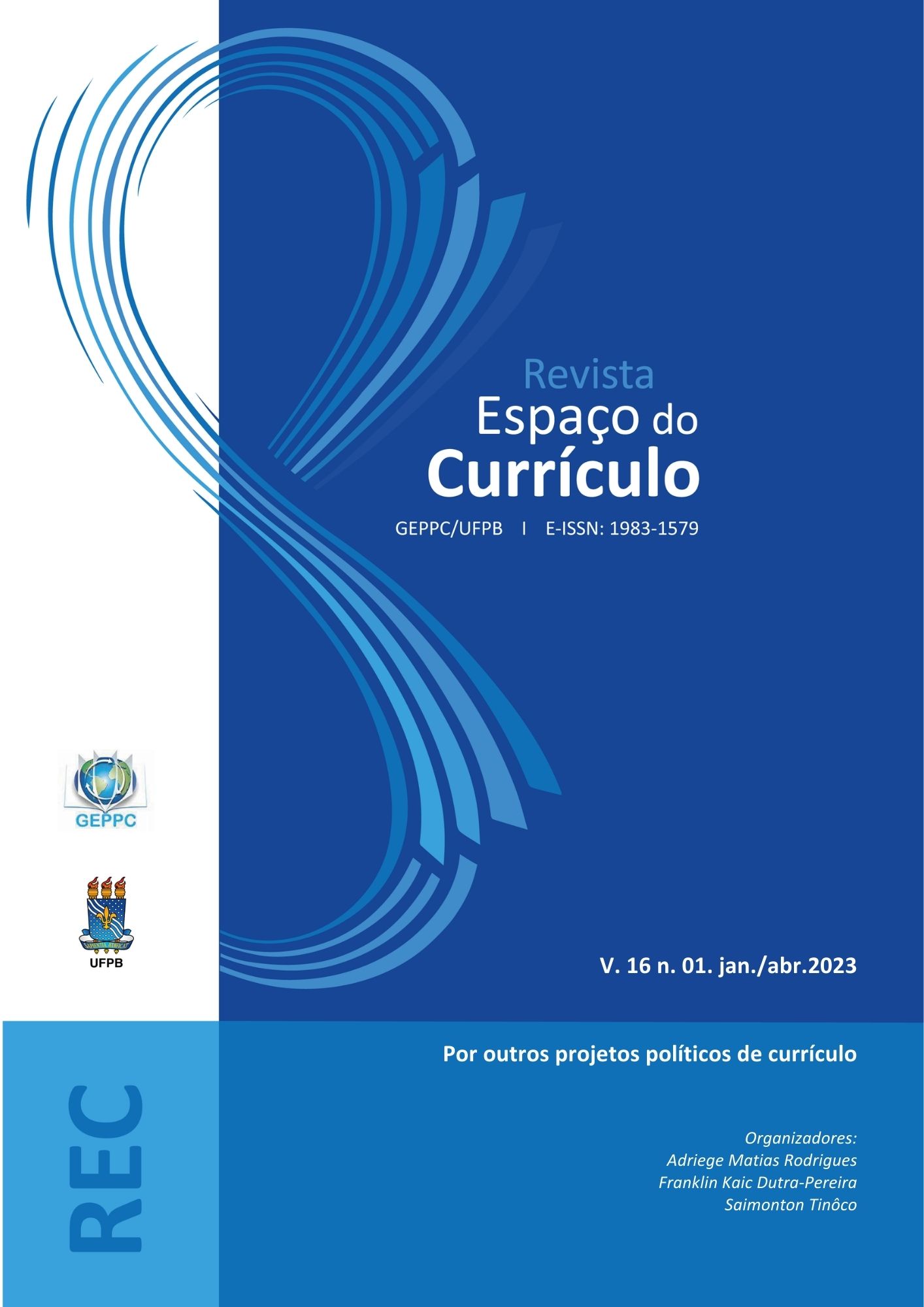THE EXERCISE OF TEACHING FACING THE PROCESS OF "FAVELIZATION" OF STATE HIGH SCHOOL IN RIO DE JANEIRO
reflections and proposals for overcoming inequalities
DOI:
https://doi.org/10.15687/rec.v16i1.64261Keywords:
New High School, Precariousness, Rio de Janeiro, Favelization, InequalityAbstract
This article discusses the problem of the vulnerability of teaching practices and, consequently, of the teaching-learning of adolescents and young people in the face of the precarious regime of education in high school in the state of Rio de Janeiro, whose historical process we call “favelization”. The favelization of state public education, as well as the difficulties faced by teachers in the exercise of pedagogical practice, are part of an institutionalized project of precariousness of the role of the State in public secondary education offered to the most needy sections of the population of the state of Rio de Janeiro. Favelização do Ensino Médio is a “project” that has its historical roots in the unequal development of education, whose most affected beings are the black populations and the popular layers; for this reason it needs to be discussed and fought in its originais essence – which is basic education. The article's methodology of analysis is bibliographical research on sources that deal with the educational experience and its markers of inequalities. Public quantitative data offered by research institutions, theorists and theorists in the fields of Education, Sociology and Urban Studies help us to explain this process. We propose that the answer to the fight against the favelization of Secondary Education lies in the development of complementary disciplines and competences from basic education, aiming at a quality public school that provides training to teachers, equity and completeness of training for all.
Downloads
Metrics
References
AKOTIRENE, Carla. Interseccionalidade – feminismos plurais. São Paulo: Casa Sueli carneiro/ Instituto Pólen, 2019.
ALBUQUERQUE, Leila Marrach Basto de. Comunidade e sociedade: conceito e utopia. Raízes, Ano XVIII, n. 20, nov. 1999, p. 50-53.
AMORIM, Simone; BOULLOSA, Rosana de Freitas. O estudo dos instrumentos de políticas públicas: uma agenda em aberto para experiências de migração de escala. AOS – Amazônia, Organizações e Sustentabilidade, v. 2, n. 1, jan-jun 2013, p. 59-69.
BRASIL, Carta Aberta pela Revogação da Reforma do Ensino Médio (Lei 13.415/2017). Associação Brasileira de Alfabetização (ABAlf) et al, Brasília, 08 de jun. de 2022.
BRASIL. Casa Civil, Lei nº 9.394, de 20/12/1996. Estabelece as diretrizes e bases da educação nacional (LDB). Disponível em: http://www.planalto.gov.br/ccivil_03/leis/l9394.htm. Acesso em: 08 de mai. de 2022.
BRASIL. Casa Civil. Constituição Brasileira. Disponível em: http://www.planalto.gov.br/ccivil_03/constituicao/constituicao.htm. Acesso em: 08 de mai. de 2022.
BRASIL. Casa Civil. Lei nº 13.415, de 16 de fevereiro de 2017. Estabelece novas as diretrizes e bases da educação nacional. Disponível em: http://www.planalto.gov.br/ccivil_03/_ato2015-2018/2017/lei/l13415.htm. Acesso em: 19 de jun. de 2022.
BURGOS, Marcelo Baumann. Dos parques proletários ao Favela-Bairro: as políticas públicas nas favelas do Rio de Janeiro. In: ZALUAR, Alba; ALVITO, Marcos (Orgs.). Um século de favela. 5 ed. Rio de Janeiro: FGV, 2006.
BURGOS, Marcelo Baumann. Escola pública e segmentos populares em um contexto de construção institucional da democracia. Dados – Revista de Ciências Sociais, RJ, v. 55, n. 4, 2012, p. 1015-1054.
CRENSHAW, Kimberlé. Documento para o encontro de especialistas em aspectos da discriminação racial relativos ao gênero. Estudos feministas, Florianópolis, v. 10, n. 1, p.171, 2002.
DAVIS, Angela. Conferência realizada no dia 13 de dezembro de 1997, em São Luís (MA), na I Jornada Cultural Lélia Gonzalez, promovida pelo Centro de Cultura Negra do Maranhão e pelo Grupo de Mulheres Negras Mãe Andreza.
DICIONÁRIO AURÉLIO – Versão Eletrônica. Curitiba: Positivo, 2010.
FREIRE, Leticia de Luna. Favela, bairro ou comunidade? Quando uma política urbana torna-se uma política de significados. Revista DILEMA, 2008, pp. 95-114.
INEP. Instituto Nacional de Estudos e Pesquisas Educacionais Anísio Teixeira. Sinopse estatística da educação superior 2015. Brasília, DF: INEP, 2016. Disponível em: http://portal.Inep.gov.br. Acesso em: 07 maio 2022.
IPEA. Objetivos de Desenvolvimento Sustentável. Educação de Qualidade. 2022. Disponível em: https://www.ipea.gov.br/ods/ods4.html. Acesso em: 19 de jun. de 2022.
LEEDS, Anthony; LEEDS, Elizabeth. A sociologia do Brasil urbano. Rio de Janeiro: Zahar, 1978.
MINISTÉRIO DA EDUCAÇÃO. Diretrizes Curriculares Nacionais Gerais da Educação Básica. Brasília: MEC, 2013. Disponível em: http://portal.mec.gov.br/index.php?option=com_docman&view=download&alias=13448-diretrizes-curiculares-nacionais-2013-pdf&Itemid=30192. Acesso em: 08 de mai. de 2022.
MINISTÉRIO DA EDUCAÇÃO. Novo Ensino Médio – Perguntas e respostas. Disponível em: http://portal.mec.gov.br/component/content/article?id=40361. Acesso em: 08 de mai. de 2022.
MINISTÉRIO DA EDUCAÇÃO. Resolução CNE nº 3, de 21/11/2018. Atualização das Diretrizes Curriculares Nacionais para o Ensino Médio. Disponível em: http://portal.mec.gov.br/docman/novembro-2018-pdf/102481-rceb003-18/file. Acesso em: 08 de mai. de 2022.
NAÇÕES UNIDAS BRASIL. Sobre o nosso trabalho para alcançar os Objetivos de Desenvolvimento Sustentável no Brasil. 2022. Disponível em: https://brasil.un.org/pt-br/sdgs. Acesso em: 19 de jun. de 2022.
OLIVEIRA, Jane Souto de; MARCIER, Maria Hortense. A palavra é “favela”. In: ZALUAR, Alba; ALVITO, Marcos (Orgs.). Um século de favela. 5 ed. Rio de Janeiro: FGV, 2006.
OLIVEIRA, Juliana Duarte. A reforma do ensino médio: mudança para melhor? análise da reforma do ensino médio e proposta da (BNCC). São Paulo: Dialética, 2022.
SEEDUC-RJ – SECRETARIA DE ESTADO DE EDUCAÇÃO. SEEDUC em números: Indicadores Educacionais. Disponível em: https://www.seeduc.rj.gov.br/mais/seeduc-em-n%C3%BAmeros. Acesso em: 19 de jun. de 2022.
SILVA, Jailson de Souza e. O que é favela, afinal? Rio de Janeiro: Observatório de Favelas do Rio de Janeiro, 2009. p. 16.
Downloads
Published
How to Cite
Issue
Section
License
Copyright (c) 2023 Curriculum Space Journal

This work is licensed under a Creative Commons Attribution 4.0 International License.
By submitting an article to Curriculum Space Journal (CSJ) and having it approved, the authors agree to assign, without remuneration, the following rights to Curriculum Space Journal: first publication rights and permission for CSJ to redistribute this article. article and its metadata to the indexing and reference services that its editors deem appropriate.
















